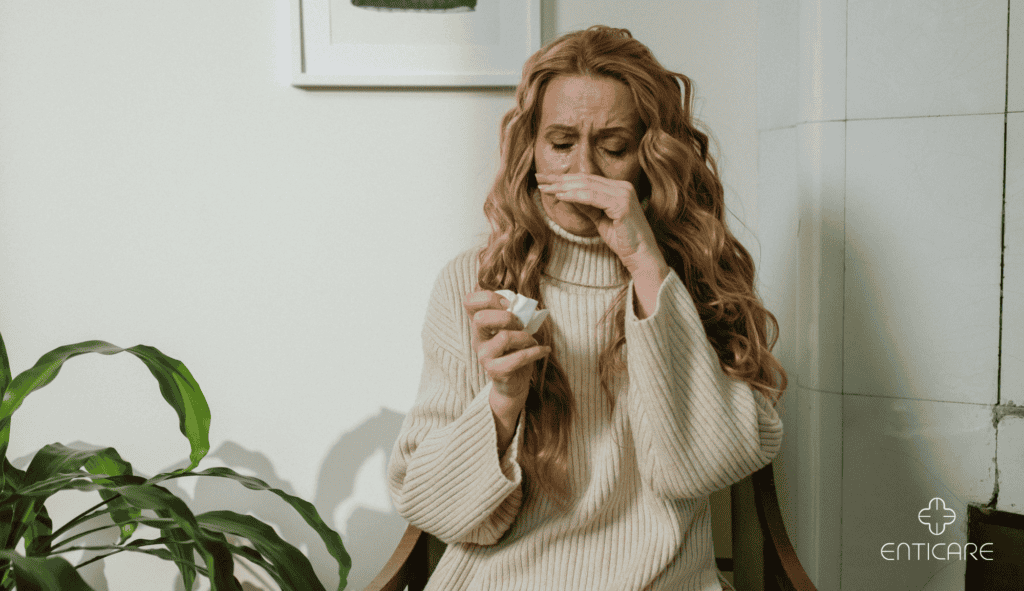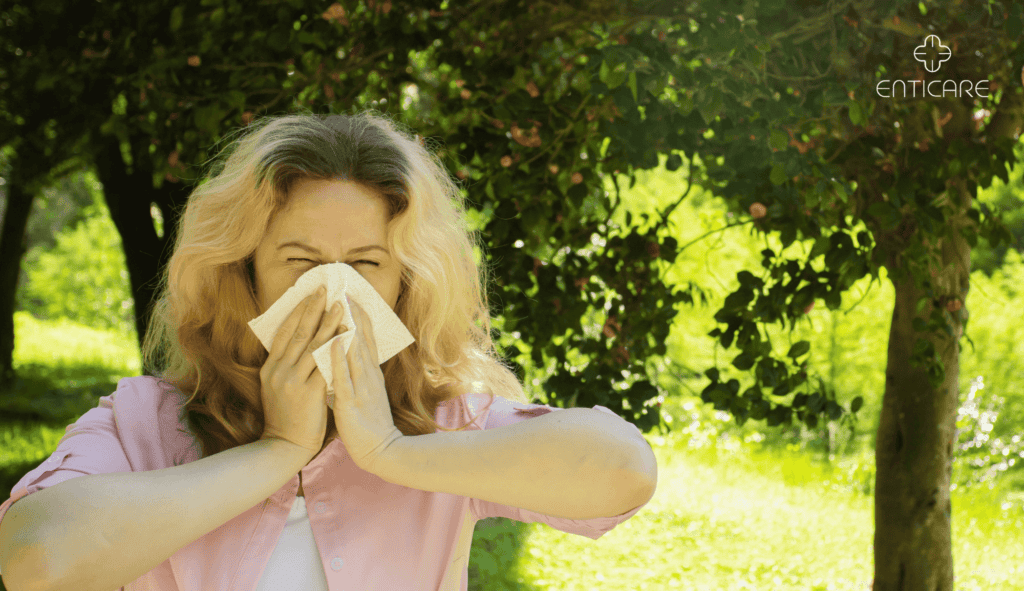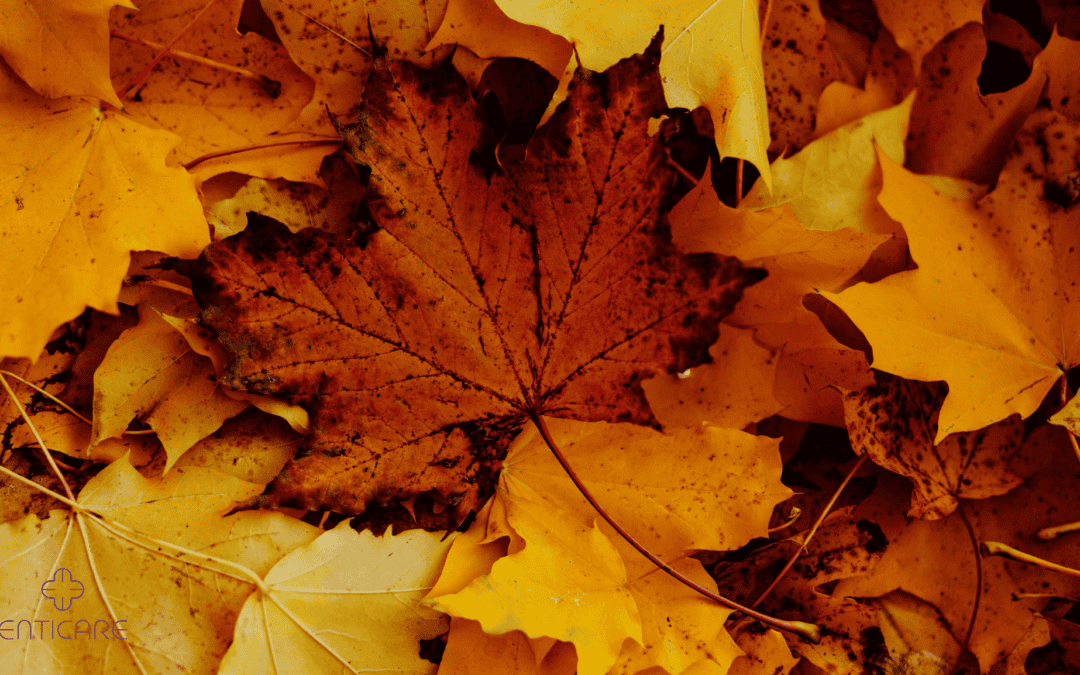As the radiant colors of autumn paint the landscape, many find themselves grappling with a less picturesque aspect of the season – fall allergies. Join us on a journey through golden leaves and brisk air as we delve into understanding and managing autumn allergies.

The Fall Allergy
Before we explore the specifics, let’s set the scene. Autumn, with its crisp air and falling leaves, is a beloved season for many. However, for allergy-prone individuals, it can also bring a symphony of sneezes and sniffles. Understanding the triggers of fall allergies is crucial for navigating this seasonal challenge.
Unmasking the Culprits Behind Autumn Allergies
-
- Ragweed Pollen: A major player in fall allergies, ragweed releases pollen into the air from late summer to early fall. This common allergen can trigger sneezing, itching, and nasal congestion.
- Mold Spores: Damp conditions in the fall create an ideal environment for mold growth. Mold spores can become airborne, causing respiratory symptoms in susceptible individuals.
- Dust Mites: As we retreat indoors with the onset of cooler weather, dust mites, a common indoor allergen, can trigger allergic reactions. Regular cleaning and dusting can help alleviate symptoms.

Practical Tips for Understanding and Managing Autumn Allergies
Now, let’s explore some actionable steps to help you navigate the fall allergy season:
-
- Monitor Pollen Levels: Stay informed about daily pollen forecasts, especially for ragweed, and plan outdoor activities accordingly.
- Keep Windows Closed: While the crisp fall breeze may be tempting, keeping windows closed can prevent outdoor allergens from entering your home.
- Maintain Indoor Air Quality: Use air purifiers, clean vents, and regularly replace air filters to minimize indoor allergens like mold spores and dust mites.
- Practice Good Allergy Hygiene: Shower and change clothes after spending time outdoors to remove pollen and allergens from your body and clothing.
- Consider Allergy Medications: Consult with a healthcare professional at Enticare about appropriate allergy medications to manage symptoms. Antihistamines, nasal sprays, and decongestants can be effective options. For some, we can also do allergy testing, and discuss treatment solutions like allergy injections or allergy drops.

Embracing a Symptom-Free Autumn
Armed with knowledge and practical strategies, you can embrace the beauty of autumn without succumbing to the discomfort of allergies. Whether you’re reveling in fall foliage or savoring pumpkin-spiced delights, these tips can help you enjoy the season to the fullest.
In conclusion, while autumn allergies may add a challenging note to the fall symphony, a proactive approach allows you to navigate this seasonal tune with ease. Understand the triggers and implement practical solutions to revel in the wonders of autumn, sneeze-free. Let us help you find the best course of treatment. Call us at 480-214-9000.

